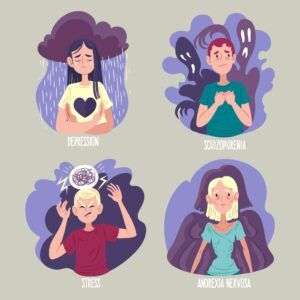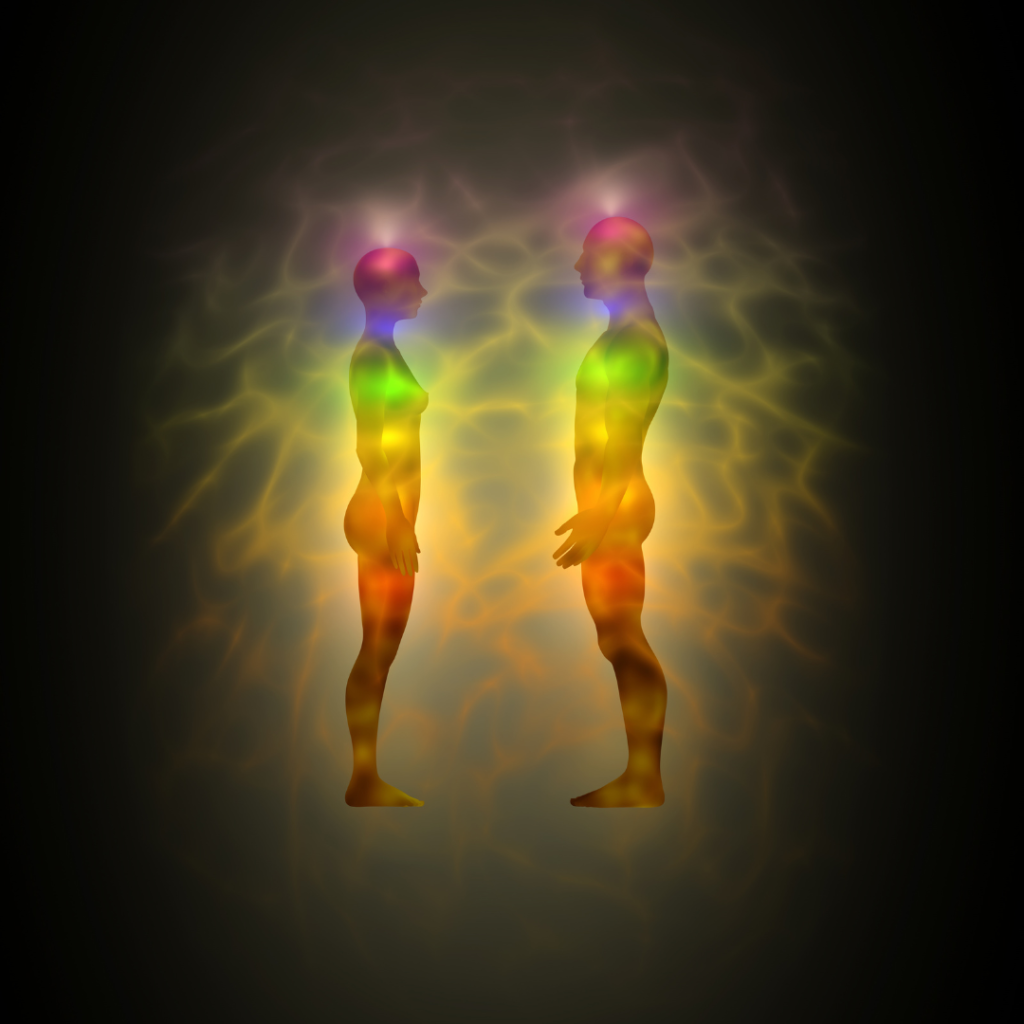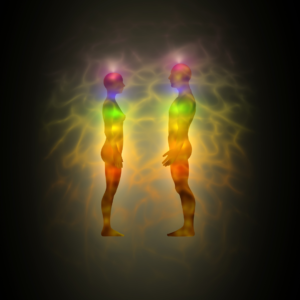Lower back pain is the most common health problem affecting millions worldwide. Many factors can cause it, such as physical injuries, poor posture, and a sedentary lifestyle. However, did you know that your emotions can also trigger lower back pain? That’s right; your mental and emotional state can impact your physical health more than you realize. In this blog, you will learn about the connection between emotions and lower back pain and why it’s crucial to understand this relationship. So, let’s get started.
Why emotions and lower back pain are connected:
Lower back pain has commonly become a large-scale problem affecting people of all ages and genders. It can range from mild/acute discomfort to severe pain and significantly impact a person’s quality of life. While physical factors such as posture and injury are well-known causes of lower back pain, many people overlook the role of emotions in this condition. However, research has shown that stress, Anxiety, depression, and other emotional factors can lead to lower back pain.
If you are also one of those experiencing overwhelming extreme emotions and triggering muscular pain in the lower back, then my friend, you are not alone. I have been through those unfortunate experiences even though I was working out regularly while paying attention to my posture and everything, but guess what? Mental awareness of my extreme emotional handovers was missing.
Well, Don’t worry. These things can be taken care of through several methods of healing. First, however, before we move further, let’s take a quick look at the connection between Emotions and lower back pain.
Understanding the Mind-Body Connection
Do you know the human body is a complex system with interconnected and interdependent parts? Unsurprisingly, the state of your mind and emotions can affect your physical health. In recent years, the concept of the mind-body connection has gained popularity in the medical and wellness communities. This idea suggests that mental and emotional states can influence physical health and vice versa. This connection is not limited to lower back pain but can impact many other health issues.
The Link Between Emotions and Lower Back Pain.

Several emotions can lead to lower back pain and sometimes lower back & hip stiffness.
In the yogic system, we say that everything is energy, so it also signals that all these emotions which rise within us are manifestations of it. Hence any triggering emotion can be considered as energy growing within us. Therefore whenever you feel these intense feelings, it becomes so important to channel them because the law of energy says:
“Neither be created nor be destroyed but only transformed.”
So if the transformation does not happen, this energy will start moving around to look for a space to settle down. Most likely, it will settle down in areas sensitive to the particular emotion rising within you. In the case of fear, the location is the sacral chakra. Now here, if this chakra is blocked, not stimulated, it will be overpowered by the negative energy generated by fear.
As soon as this happens, the area around that chakra will start to react example, blood circulation around all the never & muscles of the affected area will slow down. Over time, this will cause chronic stress to the muscles, and never that can later lead to tension and tightness in the lower back muscles, resulting in pain and discomfort.
To explain physiologically, Whenever we experience stress, our nervous system switches our bodies into a response called fight or flight mode, which releases hormones that increase our heart rate and blood pressure. i.e., expecting us to react or respond. Here intense physical activity is required. If it does not happen, then emotions such as Anxiety and fear can also contribute to lower back pain by causing us to tense up and hold our bodies in hypervigilance. This tension can lead to muscle spasms and pain in the lower back.
Similarly, Anger and frustration can manifest physically as tension in the lower back muscles. When angry or frustrated, we may hold ourselves in a rigid, tense posture that can contribute to pain and discomfort.
Eventually, we withdraw and become less active. This lack of movement and physical activity can weaken the lower back muscles, making us more prone to pain and injury.
Isn’t it unbelievable that these two emotions and lower back pain have such an extreme and deep science behind their cause? So let’s explore these things in a bit more detail:
Stress and Anxiety:
Stress and Anxiety are the most common but threatening emotional factors that can lead to lower back pain. When stressed/anxious, your body releases stress hormones like cortisol and adrenaline. These hormones can cause muscle tension and tightness, leading to discomfort and pain in your lower back. Moreover, stress can also cause you to adopt poor posture, leading to further strain on your lower back muscles.
Here is a relatable example: whenever a parent yells or scolds their child, you can often observe how the child becomes so vulnerable that they mold the spine in a round shape and brings the shoulds in front, making himself slouching. That’s the effect of the energy shift, a direct emotional alteration. Similarly, if an adult suffers from extreme fear, he will likely develop such a posture. Unfortunately, little awareness of the pose is needed to figure this out.
Depression:
Depression is real, and it’s a severe condition affecting millions worldwide. It can cause physical symptoms such as fatigue, sleep disturbances, and chronic pain. However, many researchers have claimed that people with depression are more prone to lower back pain than those without this condition. The reason behind this link is not entirely apparent, but it’s thought that depression can cause changes in brain chemistry that affect pain perception. Depression doesn’t only have the connection of emotions and lower back pain, but there is a lot of chance that it might reflect in other body parts (shoulder or neck sometimes). However, the lower back remains the most prominent.
Anger and Resentment:
Anger and resentment are negative emotions that can cause tension in your body. For example, your muscles can become tight when angry, leading to lower back pain. Moreover, these emotions can also cause you to engage in behaviors that are not beneficial to your physical health, such as overeating, smoking, and avoiding exercise. It is important to remember that these two emotions are extremely powerful than the rest of others. Therefore, the harm done by these two might have much more impact on our bodies. The condition called chronic back pain can be used as an example here.
Fear and Trauma
Fear and trauma can cause physical symptoms such as muscle tension, headaches, and chronic pain. When you experience trauma, your body releases stress hormones that can lead to muscle tension and inflammation. This tension can manifest as lower back pain, primarily if the trauma is related to the lower back area. Especially in the case of females, emotional trauma usually stores in the hip or lower back area.
Why is it so that most of our hormonal glands are located around the sacral chakra, which is connected to sexuality as well. If a woman is traumatized anyway at the sexual level, then she is most likely to develop blockage here, causing other health issues also, such as hormonal imbalance. Once the energy is blocked, the affected area’s organs, muscles & nerves will be affected, so the connection between emotions and lower back pain is not limited here. It is much more profound.
Note: We can discuss it in another blog post. However, if you want to explore the psychological part of our mind, check out our other blog post on the Psychology of the mind.
The Mechanism Behind Emotions and Lower Back Pain:
The connection between emotions and lower back pain has yet to be entirely understood. However, several mechanisms can explain how feelings can lead to physical pain. One possible explanation is that negative emotions can cause muscle tension and tightness, leading to discomfort and pain. Moreover, stress hormones can also cause inflammation, leading to further pain and discomfort.
Coping Strategies for Emotional Lower Back Pain:

If you’re experiencing lower back pain due to emotional factors, several coping strategies can help you manage your symptoms. Some of these strategies include:
- Yoga, Mindfulness, and Meditation
Mindfulness and meditation can help you manage stress and Anxiety, leading to a reduction in muscle tension and pain. These techniques involve bringing our focus back to the present moment and, eventually, letting go of negative thoughts and emotions. If you want to know more about yoga poses to beat lower back pain, check out the blog: 10 Best Poses of Yoga For Back Pain Relief & Hip Stiffness
- Cognitive Behavioral Therapy (CBT)
CBT is a psychological therapy that can help you identify and change negative thought patterns contributing to your emotional pain. This therapy can also help you develop healthy coping skills to reduce physical symptoms.
- Emotional Release Techniques
Emotional-release techniques like massage therapy and acupuncture can help you release muscle tension and reduce pain. These techniques can also help you manage negative emotions and improve your well-being. Simple pranayama techniques and dynamic meditations are powerful for curing lower back pain and releasing extreme emotions.
- Exercise and Physical Therapy
Exercise and physical therapy can help you strengthen your muscles and improve your posture, reducing lower back pain. These activities can also help you manage stress and Anxiety and improve your mood.
Conclusion
Lower back pain can be complex with many causes, including emotional factors. Stress, Anxiety, depression, AngerAnger, and fear can all contribute to physical pain and discomfort. You can develop healthy coping strategies to manage your symptoms by understanding the link between emotions and lower back pain. In addition, Mindfulness, cognitive-behavioral therapy, emotional release techniques, and exercise can help reduce your pain and improve your overall well-being.
FAQs
Can emotional factors cause chronic lower back pain?
Yes, emotional factors can contribute to chronic lower back pain, especially if left untreated. You must remain aware that only emotions and lower back pain are connected to all types. The extreme stiffness and chronic pains we feel within our body, most likely around 95%, have psychological and mental suffering as a leading cause behind it.
How can I know if my lower back pain is due to emotional factors?
If you have a history of stress, Anxiety, depression, or trauma and experience lower back pain, your emotional state may contribute to your symptoms. Consulting with a therapist or healthcare provider can help you identify the underlying cause of your pain. However, it is extremely important to remember that in such cases, proper therapy sessions can play a huge role in identifying the healing of the root cause of the pain. Our body is highly sensitive to whatever we perceive physically, mentally, and emotionally. Therefore, triggering emotions and lower back pain are both connected.
Can exercise worsen lower back pain caused by emotional factors?
Exercise can help you manage your lower back pain by improving muscle strength and posture. If you are a complete beginner and pain is also in the initial stages practicing simple exercises and yoga poses can cure the problem. However, in the case of chronic lower back pain, consulting a healthcare provider before starting any exercise program is essential.
Can emotional release techniques help me manage my lower back pain?
Yes, emotional release techniques, such as massage therapy and acupuncture, can help you release muscle tension and reduce pain. These techniques can also help you manage negative emotions and improve your well-being.
Can emotional factors cause lower back pain in children?
Yes, emotional factors can contribute to lower back pain in children, especially if they experience stress or Anxiety. It’s essential to consult with a healthcare provider if your child is experiencing lower back pain to identify the underlying cause. Therefore, awareness in parenting is needed as not only emotions and lower back pain are connected, but also other health issues might develop if conditioning is not done properly.








One Response
Great content. Thanks for elaborating